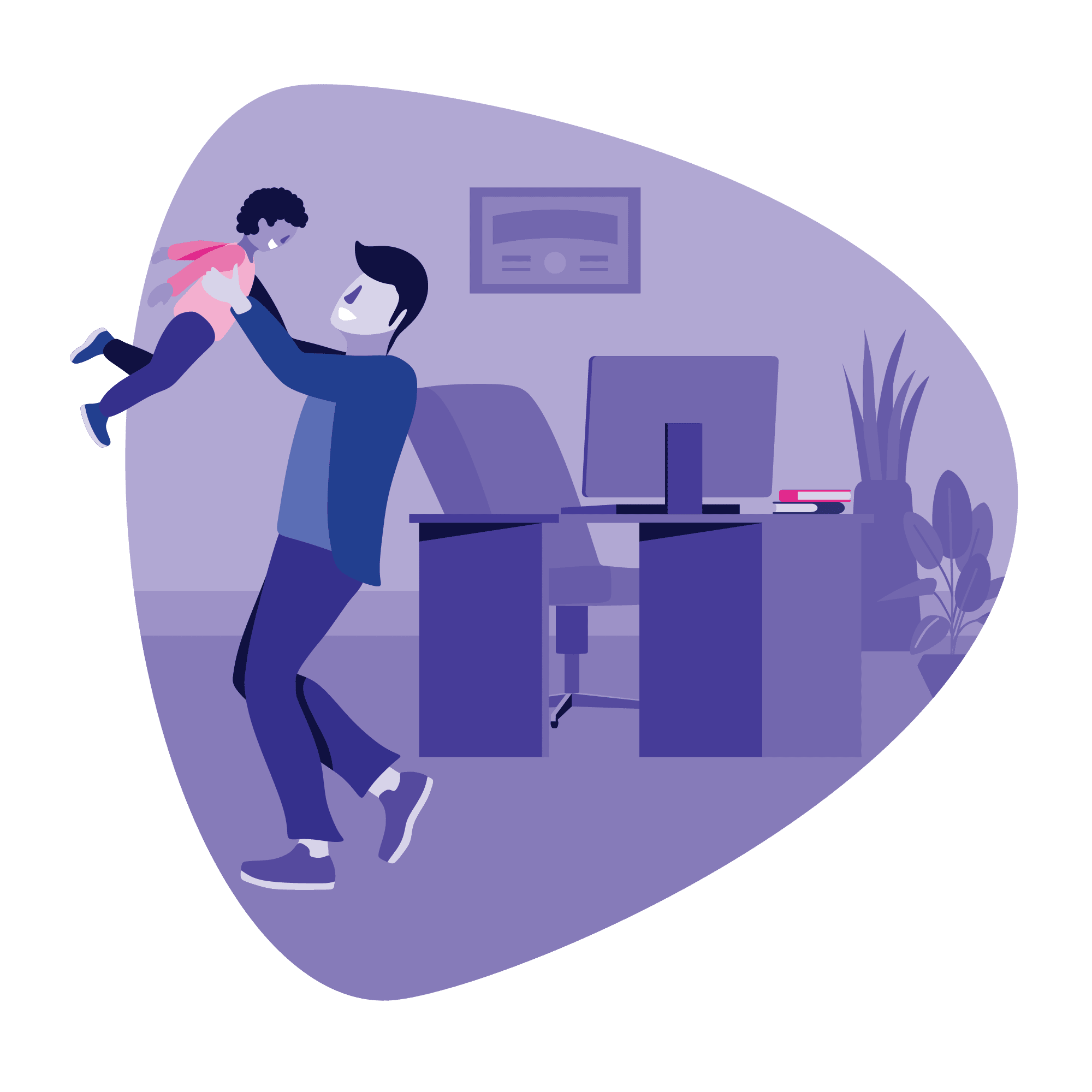Iris clinicians are at the heart of what makes our organization such a special place to work. That’s why we’re turning the spotlight on the amazing work they’re doing every day. This month, we’re sitting down to talk with Erica Picon, an LCSW practicing in California.
Q. How did you find Iris and decide you wanted to be an Iris provider?
A: I found Iris on Indeed. I knew I wanted to switch to telehealth, so I applied to a bunch of different positions. But, what made the difference for me with Iris, was the interview process. Initially, I applied for a job in New York, but it wasn’t the right opportunity at the time, so I wasn’t willing to make the switch. The person I interviewed with kept my resume and asked if I’d like to be considered if anything in another state popped up. I said, “yes,” but didn’t think anyone would actually reach out again because there were so many applicants, but they followed up.
The fact that they remembered me, cared, and wanted to see if there was a way to make it work, shows the dedication of Iris overall. That was pretty much the determining factor for me.
Q. What does a typical day as an Iris Telehealth provider look like for you?
A: I work in an outpatient behavioral health setting with adult clients with severe mental illness and functional impairments. When I’m doing my client sessions and my documentation, I make my own schedule. There are a few meetings I have with people on-site, including regular meetings with our supervisor, meetings with the whole clinical team, and any necessary discussions around clients who need higher care or more attention.Otherwise, I can structure my time how I want to between meeting with clients, checking in with collaterals, case managers, and prescribers, and whenever I want to get the documentation in. I like that I get to determine how my day flows.
Q. How do you foster connection with patients virtually?
A: That was tough at first because it was my first time doing any type of telehealth. I really lean into acknowledging the telehealth piece with the client. Especially if they’ve opted for a phone session instead of Zoom, I’ll say, “I know this could be a little awkward. There might be a moment when it sounds silent. If that happens, I don’t want you to think that the call was lost or I’m not here.” I’ll let them know that sometimes I’m taking a second to think about how I want to respond, or I’m making a note of what they said because I know I want to circle back. I think it’s important to acknowledge those little pieces.
Then, I let them know the benefits of telehealth, too. If it is a tough topic we’re discussing, it’s good to say, “you know you’re essentially in your safe space right now where you feel the most comfortable, so let’s make that even more comfortable for you. What’s going to make you feel as good as possible while we dive into this?” Whether it means lighting a candle, getting a cup of tea ready, or getting their favorite blanket. Whatever it is, I recommend using that piece in the therapeutic process.
Q. As a healthcare professional, how do you manage work-life balance?
A: Work-life balance is something I struggled with before taking this job. That was important to me, and I think that is what made me want to switch to telehealth. I am very conscientious about shutting down my computer at the end of the day. I don’t leave it open. I want to ensure it feels like a separate work space and living space. I don’t have any notifications on my phone. I don’t check emails or have Microsoft Teams on my phone. When it’s my lunchtime, I make sure I walk away from the computer, go to a different room to eat, or go outside for a walk. I find those opportunities throughout the day to take a little break and make sure I do that.
At the end of the day, I’m making sure there’s no chance that something will pop up where it pulls me back in. It’s also helpful that the site I’m at has a crisis line. That resource put me at ease, knowing my clients can still access help if they need to, but it won’t be me at that time. We have that conversation with clients – so, they’re aware of that, which is helpful too.
Q. What are your biggest learnings from your time at Iris?
A: This learning is very specific to the structure of Iris. While you work for Iris, you’re also placed at another healthcare organization. When I was applying for other telehealth jobs, you only worked for them. I wondered if working for Iris and a clinic would create any friction, or if there would be different expectations.
However, I found that it’s very cohesive, and I like that a lot. Everyone seems like they’re on the same page and I feel supported on both ends. I know Iris talks to my site and talks to me. We all talk to one another, and it feels like a cohesive team, which has been huge.
Q. What is the most rewarding part of your job?
A: Client care. We’re not getting into this field unless it’s rewarding. Separate from that, it’s feeling appreciated and valued as an employee. Iris and my site have both been great. The check-ins aren’t just reviewing what needs to be worked on, but a lot of the check-ins are letting you know you’re doing great or sharing positive feedback. You know you’re doing good, and you hear that from someone. Iris views its employees, at least in my experience so far, as human beings, too. They want people to feel happy here.
Q. What do you love about working with Iris?
A: There’s a really good balance between feeling independent but also supported. So you don’t at all feel micromanaged. You’re a clinician, and you know what you’re doing. No one makes you feel like they are checking in on you every second, but you never feel alone. You still feel like you know who to reach out to, and anytime I have reached out to someone, they’re very responsive and helpful. If I don’t know who to reach out to, I’ve reached out to anyone I’ve come across at Iris and been like, “you might not be the right person, but would you be able to direct me to who I should talk to?” Everyone has always responded and has either cc’d who I should speak to or helped me look into it.
Q. Why do you think telepsychiatry is important to the future of mental healthcare?
A: Telepsychiatry puts people in their safe spaces when discussing tough topics. There can be many situations where people might not have received the help they needed because of their diagnosis or the severity of their symptoms. For example, for someone with agoraphobia who can’t really leave their house, it’s going to be hard for them to go into an office to see their provider. Or if there’s someone who can leave their home but they have a flare-up that day. Their anxiety or PTSD is triggered, and it’s hard to go into the office for their appointment. With telepsychiatry, you’re making it more accessible for them to still get help, especially when they’re struggling, and maybe they would have canceled an appointment because they’re not feeling up to it. But with telepsychiatry, they can still have that appointment, and they can have it when they need it.
At Iris, we believe our providers should be respected, valued, and applauded for the work they do, and we couldn’t be more proud to say, “thank you” to our very own Erica Picon. If you’d like to learn more about working for Iris Telehealth, contact us today.


